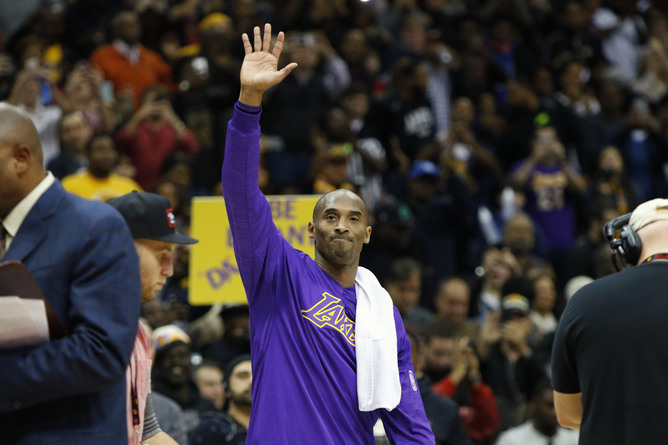
Maria Doelger Anderson, Boston University
Some of the biggest names in professional sports are facing retirement. David Ortiz and Kobe Bryant recently announced that they’ll be calling it quits in 2016. Meanwhile, Tiger Woods is openly talking about the possibility of retiring from professional golf if his surgically repaired back does not heal. Peyton Manning, sidelined after suffering a debilitating foot injury, has fans and sportswriters wondering if this season could be his last.
All of us must eventually confront the end of our careers; for professional athletes, the end comes at a younger age, often under intense media scrutiny.
So how does an athlete make a successful transition? It’s a question I sought to answer in my study, which examined the ways former professional baseball and football players successfully – or unsuccessfully – navigated the challenges of retirement.
Nothing like that rush
The financial and physical woes of former athletes are well-documented. There have been studies on why former professional athletes seem particularly vulnerable to money problems (many are the victims of poor financial advice or unscrupulous business partners). And because professional athletes often forego higher education, many will enter the workforce late, with few relevant business skills.
Then, of course, there are post-retirement physical ailments – particularly the scourge of brain injury, with repeated concussions being linked to chronic traumatic encephalopathy (CTE), depression and suicide. But even less-violent sports can bring physical ailments accumulated over decades of playing that can severely hinder a player’s quality of life in retirement, whether it’s bad knees that prevent them from chasing after their children or chronic pain that can lead to prescription drug abuse.
What’s missing from the retirement discussion is a different sort of loss, one that’s more psychological than physical or financial.
Despite the millions of dollars many have earned, despite the grueling (sometimes painful) nature of training, despite travel demands that suck time away from friends and family, many professional athletes find it nearly impossible to walk away.
After NFL wide receiver Wes Welker suffered a series of concussions, a chorus of former teammates and journalists pleaded with him to retire.
He refused.
“I’m sure I’ll find other things to keep me busy,” Welker told ESPN last year. “But…there’s nothing like that competitiveness. That feeling and that rush – you can’t really get it anywhere else.”
Clearly something less tangible than health or money is at play.

USA Today Sports/Reuters
Letting go
Psychologist Daniel Levinson analyzed the development of adult men, finding that many, as boys, had dreamed of becoming professional athletes. The few that did succeed had invested decades of their lives to their sport. Sports were so integral to their sense of self that they found it hard to envision themselves doing anything other than regularly training and competing; their sport became inextricable from their identity.
For this reason, letting go can be devastating.
In a 2009 New York Times op-ed, former professional baseball player Doug Glanville recalled a mentor telling him to fight retirement: “Never give the uniform back,” the mentor urged. “Let them rip if off your body. Once you give it back…it will never be the same and neither will you.”
But even the careers of the most successful athletes eventually come to an end. Aware of these very real challenges, I decided to reach out to a number of former professional athletes for my study. I wanted to see which factors may have influenced the subjects’ ability to successfully make the transition into retirement.
In surveys and interviews, I focused on the former athletes’ level of education, how long they played professionally, how they made the decision to retire (eg, forced out due to injury, cut from the roster or deciding on their own) and whether or not they were pressed for money upon retiring.
Perhaps surprisingly, money didn’t factor into the success of transition among my study population, even though most weren’t top earners in their sport.
What many former players in the study did value was feeling important and wanted, whether it was as a husband or father, pastor, commentator, corporate employee or charity volunteer. They expressed a need to “be somebody”; they wanted to “matter.”
The men who made the transition into life after sports most easily didn’t abandon their former identities as athletes, but they also didn’t cling to them too fiercely. While they cherished their athletic careers, they sought new meaningful experiences, which worked to help them forge new identities, ones that weren’t so closely intertwined with playing professional sports.
This is no easy task, especially after spending years on the playing field basking in attention and adulation. The prospect of toiling unappreciated, unrecognized and uncelebrated can seriously derail a smooth transition into retirement.
As one former baseball player I interviewed put it, “It took me a while to be satisfied with my new identity as it took me a while to get comfortable with my life. You have to be ready to explain at a local bar what’s going on after I was released and that people should no longer ask me about baseball. They don’t know me as the baseball player anymore; now I am the financial planner.”
New York Mets outfielder Michael Cuddyer pondered the difficulties of retirement in a recent essay for The Players Tribune. (“It goes against every grain in my body to consider a future without the game.”) Still, he realized the importance of finding new purposes and passions.
“The beauty of family,” he wrote, was “once a distant idea.” However with retirement looming, he found family becoming “an integral part of my identity.”
Watching Ortiz, Bryant and the scores of others who will fade from the spotlight this coming year should remind us how difficult it can be to craft a new identity and leave the old one behind.
Those who have spent decades honing their professional skills don’t necessarily walk away rich and famous. And each must negotiate leaving behind one professional identity in order to create a new one for the future.
![]()
Maria Doelger Anderson, Senior Associate Dean, Boston University
This article was originally published on The Conversation. Read the original article.



















